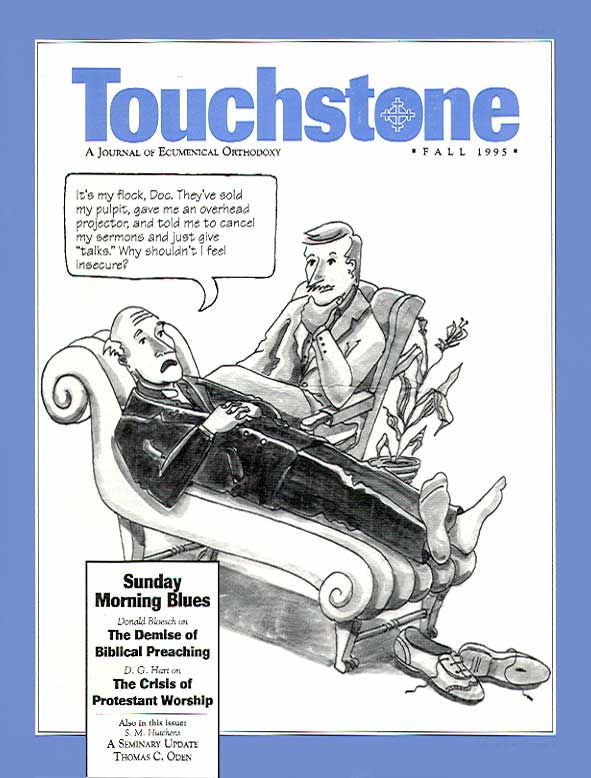Has the Shooting Stopped?
American religion has gone through two almost opposite phases of political involvement in recent decades. In the 1960s the religious left argued passionately that Christians should support the civil rights movement, the anti-war movement, and many other liberal causes, which usually meant making some kind of alliance with the Democratic Party. Beginning in the 1970s conservative Christians became exercised about abortion and other issues that have usually led to some kind of alliance with Republicanism.
It hardly needs saying that we are not saved through politics. Nor does it need saying that politics is ultimately disillusioning, precisely because it cannot bring ultimate solutions to the problems that afflict us.
The conservative religious politics of the past two decades has mainly centered on what have come to be called “family values,” that is, conflict between behavior on the one hand that strengthens the bonds between husband and wife, parents and children, and on the other that justifies “alternative lifestyles” apart from the traditional family. The “social conservatives” oppose abortion, radical feminism, homosexual “marriages,” easy divorce, and other things.
Now a recent book—Cease Fire on the Family, by a University of Notre Dame professor, Douglas Kmiec—argues that the political fighting over these issues has been essentially unproductive and that people who believe in family values need to concentrate on strengthening their own family lives.
The practical advice Kmiec gives is excellent—getting rid of television, planning various family activities, and giving children models of good parenthood. He also points out political issues usually overlooked, like the fact that zoning laws may prevent retired people from living with their children and grandchildren.
Kmiec cannot be accused of ignorance of politics. During the Reagan administration he served in the Justice Department in Washington. I happen to know him, and he is an astute observer of that scene and an excellent constitutional scholar.
As with most struggles, many people today are weary of the “culture wars,” in which it seems as though charges and counter-charges are hurled back and forth, laws are passed or repealed, yet nothing changes. Thus Kmiec’s call to look inward will find willing listeners.
There also is an inherent contradiction in “pro-family” politics, which is that those who love the family know they should spend as much time as possible with their own families, yet political activism of any kind often requires just the opposite.
While agreeing with much of what Kmiec says, I would also, however, like to enter a caution—we cannot afford to abandon politics.
The example of the civil rights movement shows this most clearly. Forty years ago there were people who admitted that segregation by race was morally wrong, yet argued against laws and court decisions outlawing it, on the grounds that we should concentrate on changing people’s minds and hearts. “You cannot legislate morality” was their slogan.
But the civil rights movement correctly saw that both were necessary. While hearts and minds were being changed, the victims of segregation had to be protected from discrimination. Furthermore, legal changes themselves had a lot to do with the way people thought and felt about race. Segregationist sentiments soon became unfashionable, however much they may have survived.
James Hitchcock is Professor emeritus of History at St. Louis University in St. Louis. He and his late wife Helen have four daughters. His most recent book is the two-volume work, The Supreme Court and Religion in American Life (Princeton University Press, 2004). He is a senior editor of Touchstone.
bulk subscriptions
Order Touchstone subscriptions in bulk and save $10 per sub! Each subscription includes 6 issues of Touchstone plus full online access to touchstonemag.com—including archives, videos, and pdf downloads of recent issues for only $29.95 each! Great for churches or study groups.
Transactions will be processed on a secure server.
more from the online archives
calling all readers
Please Donate
"There are magazines worth reading but few worth saving . . . Touchstone is just such a magazine."
—Alice von Hildebrand
"Here we do not concede one square millimeter of territory to falsehood, folly, contemporary sentimentality, or fashion. We speak the truth, and let God be our judge. . . . Touchstone is the one committedly Christian conservative journal."
—Anthony Esolen, Touchstone senior editor











